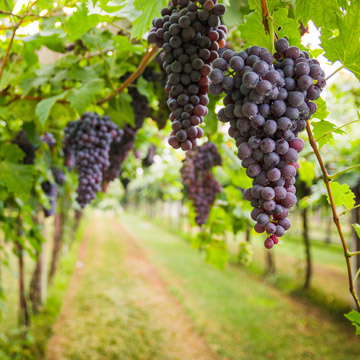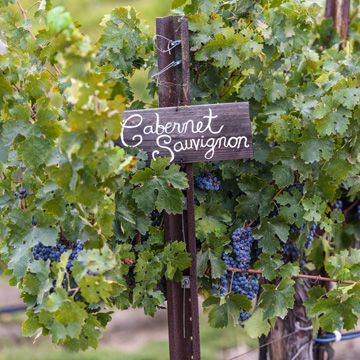
Big Batch Drink Recipes for your Super Bowl Party
January 12, 2019
Spring into Warm Weather with these Cocktails
March 3, 2019Hattiesburg, MS
Most of us have seen people swirl a small amount of wine in a glass, smell it, and taste it slowly. However, the precise terms they use when describing wine are not as well understood. Your Hattiesburg wine experts at Lincoln Road Package Store can explain the words wine connoisseurs use to describe the qualities of wine. We have provided a small list of some of those terms and a brief description of their meaning in order to help you decipher wine terms.
Oxidation
Too much oxygen can lead to oxidation, the degradation of wine due to an abundance of oxygen. This can happen during the actual winemaking process or even after the wine has been bottled or opened. When oxidation takes place, the wine’s pigmentation will decrease, and loss of aromas and flavors will occur. Think of an apple that’s been sliced and left out too long; the abundance of oxygen causes the flesh to become brown, the aromas to dissipate and the flavors to disappear. The same thing goes for oxidation in wine.
Tannic
Tannins make up the texture of the wine—the way it feels in your mouth. The seeds, pulp, and skins of red wine are mashed up as part of the wine, giving it color and tannins. Oak barrels can also give tannins to wine, as well. A wine that is “tannic” has lots of these compounds and feels caustic and bitter. Wines made from very tannic grapes are Cabernet Sauvignon, Malbec, Syrah, Mourvèdre, and Nebbiolo.
Fruity
In wine terms, “fruity” is used for easy-drinking wines that aren’t too complex or demanding, and provide easy charm and pleasure. If a bottle is merely described as fruity without further description, it usually means the wine is simple but good. If the term appears alongside many other descriptors, it’s generally meant to signify approachability.
Earthy
Earthy can be a good term or a bad one. Negatively, it can be used to jeer at wine with muddled flavors and aromas that are not clear-cut or are a little weird. If the term is used in a positive sense, it can describe the pleasant, clean smell of freshly turned, wet earth.
Traditionally made Alsace Pinot Gris can fit this more favorable description. It can also apply to wines that rested a long time on their lees—the dead yeast cells after fermentation.
In red wines, earthy tends to be used to express attractive qualities, like those associated with the aroma of fresh soil and decaying leaves in fall. This can be particularly prevalent in evolving or mature reds. You could expect to come across it in Rioja Reserva or mature Pinot Noir.
Green
Unless it is used to describe a particular fruit, like green apple, green describes a wine that it is unripe or not ready. It is clearly used in a negative sense. Green describes grapes not quite ready, too tart and not up to their aromatic potential. This could mean they were picked too soon or had a poor growing season. In regard to flavor, green suggests unpleasantly strong acidity, harsh, or even bitter.
If you are interested in understanding the delicacies of wine-making and tasting, please contact the experts at Lincoln Rd Package Store by calling (601) 268-3677 today! Ask us about wine terminology today. We will help you feel sophisticated and confident when discussing the intricacies of wine tasting. Lincoln Road Package Store proudly serves the Hattiesburg, MS area.


